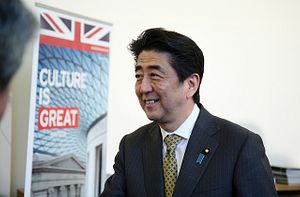In a recent article for Project-Syndicate, former Australian Foreign Minister Gareth Evans makes the point that those who analyze the often contentious relationship between China and Japan need to focus more on taking a stand than on taking sides. The reality is much more complicated than what is generally presented by many political pundits and journalists, particularly in the Western media, who resort to a good (Japan) versus bad (China) scenario, which not only ignores the historical aspects of this relationship, but quite often the truth as well.
While the West clearly remembers U.S.-Japan hostilities during World War II, the brutality of the roughly thirty million estimated Chinese, Filipinos, Malays, Vietnamese, Cambodians, Indonesians and Burmese killed by Japanese troops still clearly resonates in the East. Although considered a nation that has espoused pacifism following its defeat in World War II, any hint of nationalism has always been severely condemned by formerly occupied countries in Asia.
The rise of China, both economically and militarily, along with North Korean nuclear ambitions, have prompted a number of Japanese groups to call into question the limitations on the role of the military. This has fostered a new nationalism in Japan that may portend a movement away from its previous method of conducting international policy, namely, “checkbook diplomacy,” and has led to an intense debate about the future of Japan’s foreign policy options.
Further fueling the nationalistic fire is the more conservative and hawkish stance taken by the present Prime Minister Shinzo Abe, who not only engineered his eventual return to power in September 2012, but who has been promoting the theme around the world that “Japan in back.” The prime minister has been a leader in efforts to revise school textbooks and present what critics call a whitewashed version of Japan’s wartime history.
In mid-August of this year, two Japanese cabinet ministers and more than 80 lawmakers visited Yasukuni Shrine, seen by critics as a symbol of Japan’s past militarism. These visits, as expected, have sparked anger among its Asian neighbors. China’s official Xinhua news agency considers Yasukuni shrine “a place that honors Class A war criminals of the second world war and whitewashes Japan’s war of aggression.” In South Korea, President Park Geun-hye said the “actions of some Japanese politicians were splitting the two nations.”
There is also fear that Abe will soon follow through on his pledge to reinterpret Article 9 of the Constitution that outlaws war as a means to settle international disputes, to allow Japan to exercise its right to engage in collective self-defense. Abe often repeats his policy goal of enabling Japan to take on a greater security role, and in his recent message marking the anniversary of Japan’s World War II surrender, the previous pledge to renounce war was left out.
In his “Notes on Nationalism,” George Orwell writes, “the nationalist not only does not disapprove of atrocities committed by his own side, but he has a remarkable capacity for not even hearing about them.” This sentiment has also been echoed by Tokyo journalist Kirk Spitzer, who points out that keen observers of Japan know its territorial disputes with its neighbors aren’t really about World War II aggression or ancient historical claims. What they are really about is the Japanese inability to admit they did anything wrong during their long colonial rule in Asia.
The extent to which Japan interprets its history will impact the actions and policies of the present government and play an important role in promoting a new nationalism that may be considered a watershed for post-war Japanese international relations.
Perhaps the new focus of Japanese nationalism should be for Japan to realize and accept events of the past, both negative and positive, and focus on the future of its international identity. Japan is a nation that has much to be proud of given its postwar economic achievements and its commitment to peaceful coexistence with other nations. Continuing this trend will enable Japan to serve as a respected leader in the region and in the broader international community.
Dennis McCornac is Visiting Affiliate Professor at Loyola University Maryland specializing in economic development and Economies or East Asia.

































